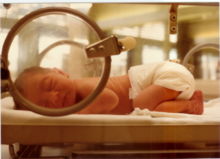97% of shoppers admit they never wash their reusable grocery bags. Dr. Susan Rehm from Cleveland Clinic talks about avoiding illness from contaminated grocery bags:
Another video: Viruses and Bacteria In Reusable Grocery Bags, from a local TV station, KOBITV:
Comments from Twitter:
SwoodLady @SwoodLady: Always something! RT @DrVes: Warning: Your reusable grocery bags can become contaminated with bacteria goo.gl/fb/sDOMs
Another video: Viruses and Bacteria In Reusable Grocery Bags, from a local TV station, KOBITV:
Comments from Twitter:
SwoodLady @SwoodLady: Always something! RT @DrVes: Warning: Your reusable grocery bags can become contaminated with bacteria goo.gl/fb/sDOMs






